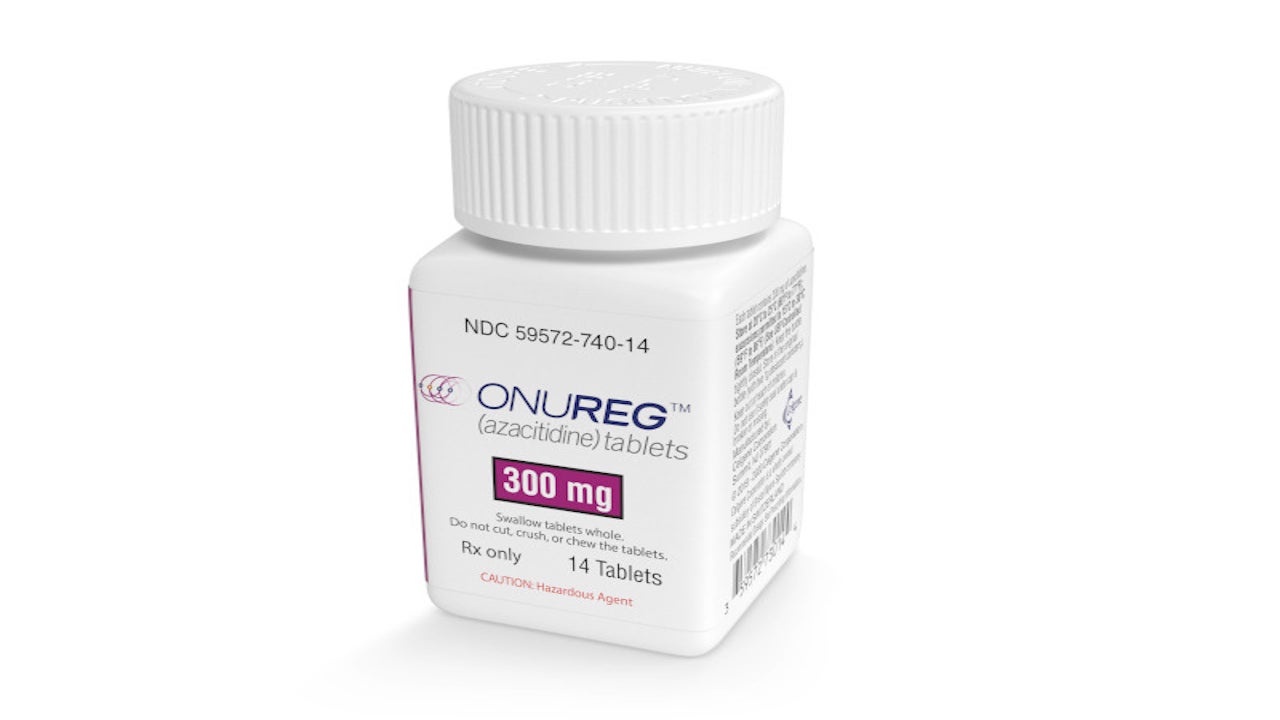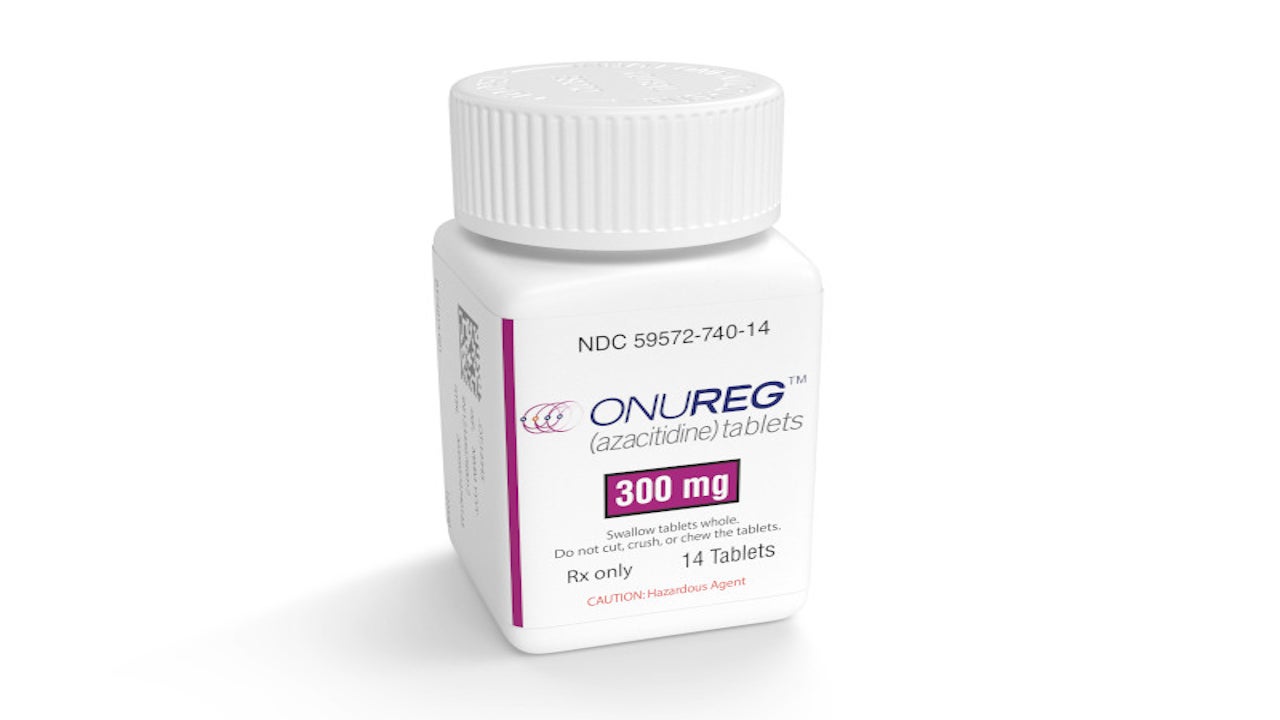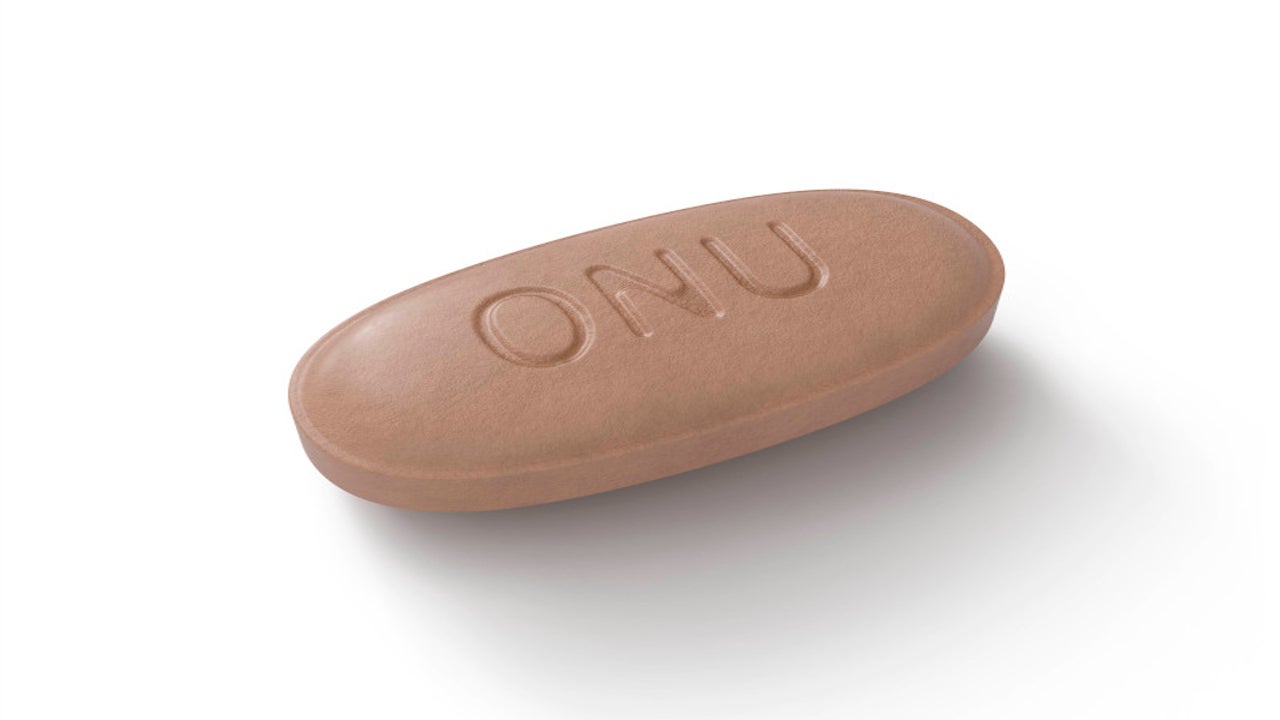ONUREG® (azacitidine) is the first and only US Food and Drug Administration (FDA)-approved drug indicated for the continued treatment of acute myeloid leukaemia (AML) in adult patients.
Developed by Celgene Corporation, ONUREG is eligible for the AML patients who have reached first complete remission (CR) or CR with incomplete recovery of blood counts (CRi) after intensive induction chemotherapy and are unable to complete intensive curative therapy.
ONUREG (azacitidine) is available as oral film-coated tablets in 200mg (pink-coloured) and 300mg (brown-coloured) dosage strength.
ONUREG approvals
Azacitidine was first approved under the trade name Vidaza™ for the treatment of myelodysplastic diseases by the FDA in 2004.
The European Medicines Agency (EMA) approved the drug for the myelodysplastic diseases in 2019.
The FDA granted priority review status to a new drug application (NDA) for the drug as a maintenance treatment for AML in adult patients in May 2020. The EMA validated the marketing authorisation application (MAA) of ONUREG in the same month.
ONUREG received FDA approval in September 2020.
It also holds FDA’s orphan drug designation.
Acute Myeloid Leukaemia (AML) causes and symptoms
AML is the most common type of acute leukaemia found in adults. It is a complex, diverse disorder associated with numerous genetic mutations and the condition typically worsens rapidly, if not treated, leading to death.
AML begins in the bone marrow but rapidly extends into the blood.
Unlike the normal development of blood cells, excessive build-up of irregular white blood cells in the bone marrow interferes with normal blood cell production in AML patients, resulting in reduced healthy white blood cells, red blood cells, and platelets.
The exact cause of AML is unknown, as no established cause is found in most of the cases. The AML symptoms typically develop over a few weeks and get worse with time.
Common symptoms include fatigue, looking pale or “washed out”, shortness of breath, frequent infections, unexplained weight loss, unusual and frequent bruising or bleeding, such as bleeding gums or nosebleeds.
Azacitidine mechanism of action
Azacitidine (CC-486) is an oral hypomethylating agent. It is a pyrimidine nucleoside analogue of cytidine that when introduced into DNA and RNA, inhibits DNA or RNA methyltransferases, reduces DNA methylation and alters gene expression.
The primary mechanism of action is believed to be DNA hypomethylation and subsequent cytotoxicity of defective haematopoietic cells in the bone marrow. Hypomethylation can preserve normal genes function that is essential to cell differentiation and growth.
Oral dosing of azacitidine prolongs the exposure of drugs during each therapy cycle to extend the therapeutic activity.
Azacitidine reduced the burden of tumours and improved survival in leukaemic tumour models in vivo.
Clinical trials on ONUREG
FDA approval of ONUREG was based on the positive results of phase 3, randomised, multi-centre, double-blind, and placebo-controlled clinical trial, QUAZAR® AML-001.
A total of 472 patients with AML who achieved CR or CRi with intensive induction chemotherapy with or without subsequent consolidation therapy were enrolled in the study.
Each patient was randomised to receive either 300mg ONUREG or placebo orally, once a day for 14 days of a 28-day cycle along with supportive care.
The overall survival (OS) was the primary goal of the study. ONUREG (24.7 months) significantly increased the median OS by almost 10 months compared to the placebo (14.8 months) in AML patients in the first remission.
The median duration of treatment for ONUREG was 12 cycles versus six cycles for placebo. A subgroup analysis demonstrated the continuity of the OS benefit in patients either with CR or CRi.





